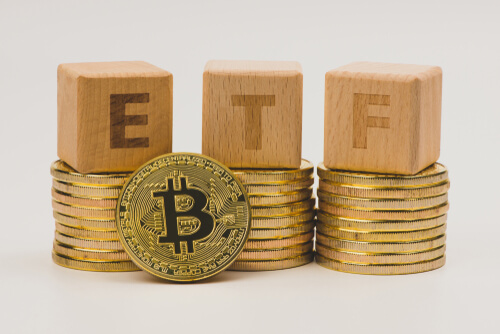There has been a lot of hype surrounding the recent Pro Shares bitcoin-based exchange-traded fund (ETF). The product has been something traders have long sought, and after many failed applications, it looks like an ETF has finally been unveiled. This ultimately drove bitcoin into reaching its most recent all-time high of approximately $66,000 per unit.
Why the Bitcoin ETF Isn’t All It’s Cracked Up to Be
While things have appeared rather stable for the past few weeks, many analysts are not convinced that the ETF – as it is – is the best way to go for traders. They comment that if crypto fans are looking to gain long-term exposure, purchasing bitcoin directly through an exchange or similar platform might be the best route to take given that they’re likely to save a lot of money over time.
Ivory Johnson – a certified financial planner – explained in an interview:
They’re always better off buying bitcoin directly.
One of the issues with an ETF as it is currently structured through companies like Pro Shares is that there is a 0.95 percent fee that goes to the asset manager. Basically, for every $10,000 someone invests, the manager keeps approximately $95, and this is something that occurs annually.
While this may not sound like a big number at first, many analysts warn that over time, this certainly adds up, and thus investors can really miss out on experiencing full profits.
Charlie Fitzgerald III – a founding member of Moisand Fitzgerald Tamayo – explained:
If it will be part of your portfolio for one, five, ten years or longer, one percent is a big fee to pay for a mutual fund or an ETF.
While many crypto exchanges and trading platforms are likely to charge one-time fees for traders who utilize their services, these fees can vary depending on many factors, and not every exchange is likely to enforce them. They are also likely to cost investors a lot less than what they would pay through an ETF.
There are a few advantages that these analysts point out however, a big one being that ETFs are not as vulnerable to hackers or malicious individuals the way crypto exchanges have been in recent years. In addition, investing in an ETF may be a positive short-term route to take. Granted the person in question is looking to sell within a few weeks, the 0.95 percent fee isn’t likely to be a big deal, as the fee ultimately amounts to about 26 cents for every $10,000 invested.
Sometimes the Fees Don’t Matter
Fitzgerald states:
The fee is inconsequential if you’re holding for two weeks and then selling it
While overall sentiment surrounding the ETF has been positive, some are not too happy that it is based on futures technology rather than physical bitcoins. They claim that the technology is inferior, and the product allegedly disallows people from experiencing full profit potential.



